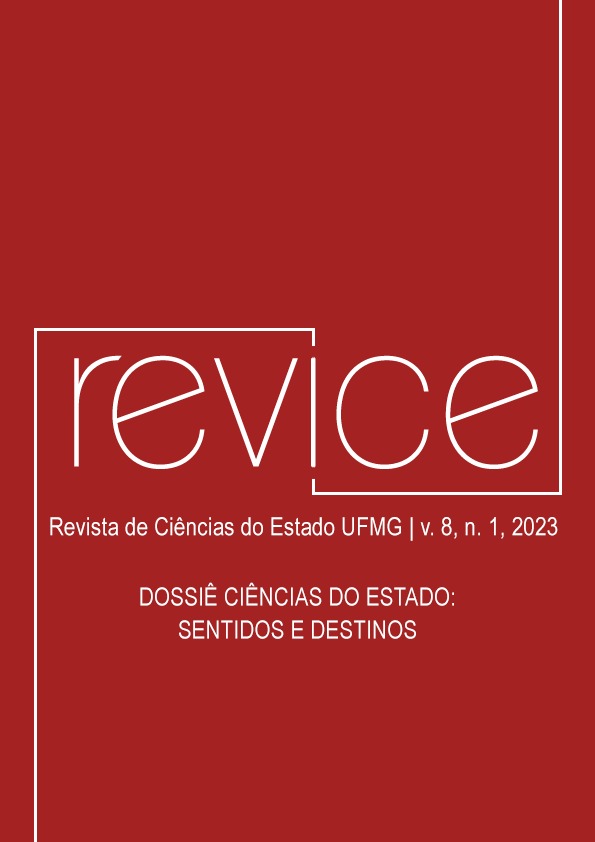Between moral philosophy and the law
moral, political and legal constructivism embedded in The Right to Justification: elements of a constructivist theory of justice
DOI:
https://doi.org/10.35699/2525-8036.2023.40548Keywords:
Theory of Justice, Constructivism, Right to JustificationAbstract
The present paper focus on the book The Right to Justification: elements of a constructivist theory of justice, by Rainer Forst. Given that a theory of justice sheds a pertinent light on law, this article aims to present how the basic human right to justification presents itself in moral, political and legal contexts, in order to explain how such contexts of justification are interconnected in the aforementioned work. This objective is justified if we understand that a theory of justice is a necessary normative feature of a legal theory aimed at justified and legitimate disputes resolution. To achieve this goal, to visualize a theory of legal legitimacy in Forst, this work specifically aims: i) to present the general characteristics of The Right to Justification philosophical enterprise; ii) to characterize its moral constructivism, with special focus on how the latter is connected to a conception of human rights and iii) to make explicit how this moral constructivism is intertwined with political and legal constructivism. From this, the following thesis is sustained: for Forst, law is the language of moral and political discourses, as well as a state order constituted and legitimized through the institutionalization of the individual moral rights. At the end, it is expected to show the relevance of developing a legal theory sensitive to questions of justice, and of developing a theory of justice sensitive to Law as an order by which it can be realized.
Downloads
References
DWORKIN, Ronald. Justice for Hedgehogs. Cambridge, MA: Belknap, 2011.
DWORKIN, Ronald. Taking Rights Seriously. London: Gerald Duckworth & Co. Ltd, 2005 (terceira impressão), publicado inicialmente em 1977.
FORST, Rainer. Justificação e crítica: perspectivas de uma teoria crítica da política. Trad. Denilson Werle. São Paulo: Editora Unesp, 2018.
FORST, Rainer. The Right to Justification: Elements of a Constructivist Theory of Justice. New York: Columbia University Press, 2012.
KORSGAARD, Christine M. Realism and constructivism in twentieth-century moral philosophy. Journal of Philosophical Research, v. 28, n. Supplement, p. 99-122, 2003.
SOLUM, Lawrence B. Legal Theory Lexicon: Legal Theory, Jurisprudence, and the Philosophy of Law. JL, v. 1, p. 417, 2011.
RAWLS, John. Kantian Constructivism in moral theory. In: FREEMAN, Samuel. Collected Papers: John Rawls. Cambridge: Harvard University Press, 1999.
RAWLS, John. Political Liberalism Expanded edition. New York: Columbia University Press, 2005.
WERLE, Denilson Luis. Reconhecimento e autonomia na teoria da justiça de Axel Honneth. Síntese: Revista de Filosofia, v. 43, n. 137, p. 401-420, 2016.
Downloads
Published
Issue
Section
License
Copyright (c) 2023 Pedro Urashima, Lunare Cardoso Amorim

This work is licensed under a Creative Commons Attribution-NonCommercial-ShareAlike 4.0 International License.
1. Os conteúdos dos trabalhos são de exclusiva responsabilidade de seu autor.
2. É permitida a reprodução total ou parcial dos trabalhos publicados na Revista, desde que citada a fonte.
3. Ao submeterem seus trabalhos à Revista os autores certificam que os mesmos são de autoria própria e inéditos (não publicados em qualquer meio digital ou impresso).
4. Os direitos autorais dos artigos publicados na Revista são do autor, com direitos de primeira publicação reservados para este periódico.
5. Para fins de divulgação, a Revista poderá replicar os trabalhos publicados nesta revista em outros meios de comunicação como, por exemplo, redes sociais (Facebook, Academia.Edu, etc).
6. A Revista é de acesso público, portanto, os autores que submetem trabalhos concordam que os mesmos são de uso gratuito.
7. Constatando qualquer ilegalidade, fraude, ou outra atitude que coloque em dúvida a lisura da publicação, em especial a prática de plágio, o trabalho estará automaticamente rejeitado.
8. Caso o trabalho já tenha sido publicado, será imediatamente retirado da base da revista, sendo proibida sua posterior citação vinculada a ela e, no número seguinte em que ocorreu a publicação, será comunicado o cancelamento da referida publicação. Em caso de deflagração do procedimento para a retratação do trabalho, os autores serão previamente informados, sendo-lhe garantido o direito à ampla defesa.
9. Os dados pessoais fornecidos pelos autores serão utilizados exclusivamente para os serviços prestados por essa publicação, não sendo disponibilizados para outras finalidades ou a terceiros.



